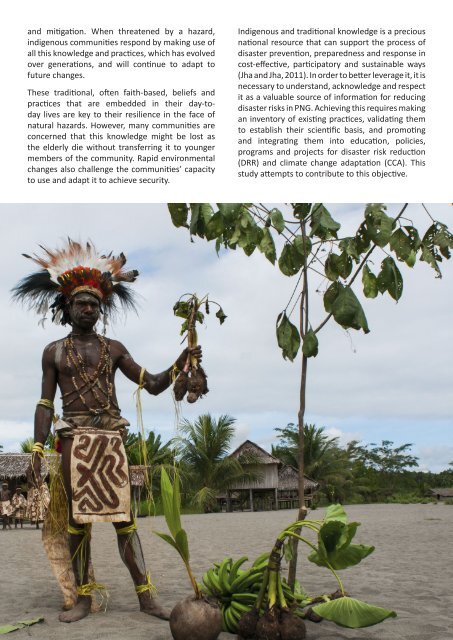INDIGENOUS KNOWLEDGE
PNG%20indigenous%20knowledge%20report%20print
PNG%20indigenous%20knowledge%20report%20print
Create successful ePaper yourself
Turn your PDF publications into a flip-book with our unique Google optimized e-Paper software.
and mitigation. When threatened by a hazard,<br />
indigenous communities respond by making use of<br />
all this knowledge and practices, which has evolved<br />
over generations, and will continue to adapt to<br />
future changes.<br />
These traditional, often faith-based, beliefs and<br />
practices that are embedded in their day-today<br />
lives are key to their resilience in the face of<br />
natural hazards. However, many communities are<br />
concerned that this knowledge might be lost as<br />
the elderly die without transferring it to younger<br />
members of the community. Rapid environmental<br />
changes also challenge the communities’ capacity<br />
to use and adapt it to achieve security.<br />
Indigenous and traditional knowledge is a precious<br />
national resource that can support the process of<br />
disaster prevention, preparedness and response in<br />
cost-effective, participatory and sustainable ways<br />
(Jha and Jha, 2011). In order to better leverage it, it is<br />
necessary to understand, acknowledge and respect<br />
it as a valuable source of information for reducing<br />
disaster risks in PNG. Achieving this requires making<br />
an inventory of existing practices, validating them<br />
to establish their scientific basis, and promoting<br />
and integrating them into education, policies,<br />
programs and projects for disaster risk reduction<br />
(DRR) and climate change adaptation (CCA). This<br />
study attempts to contribute to this objective.<br />
2


